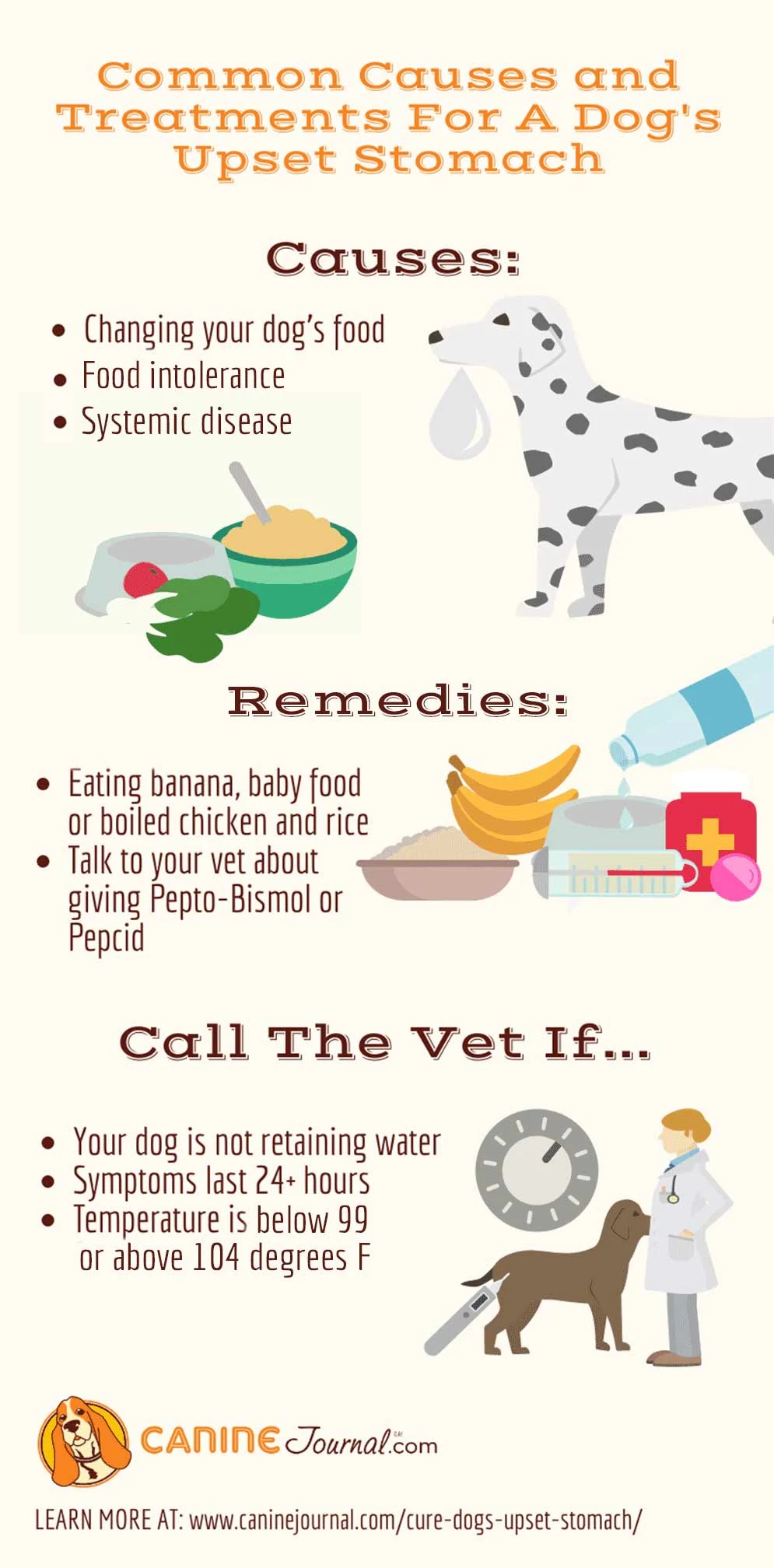Gastroenteritis in dogs, characterized by inflammation of the stomach and intestines, can manifest with symptoms ranging from mild discomfort to severe illness. While some cases can be managed at home, veterinary intervention is often crucial for accurate diagnosis and effective treatment. This guide outlines the veterinary-recommended treatments and provides advice for at-home care.
Veterinary Treatments for Canine Gastroenteritis
When your dog presents with symptoms of gastroenteritis, your veterinarian will conduct an examination to determine the most appropriate course of action. Based on the severity and specific symptoms, they may recommend the following treatments:
Anti-sickness Medication
To alleviate nausea and vomiting, anti-sickness medications can be prescribed. If your dog continues to vomit despite receiving this medication, it is essential to contact your veterinarian for further guidance.
Antacid Medications
These medications work by reducing the production of stomach acid, which can significantly improve your dog’s comfort level and aid in the healing of the stomach lining.
Probiotics
Probiotics, often recommended by veterinarians, introduce beneficial gut bacteria to help restore the normal balance of the digestive system, particularly after an episode of diarrhea. Many probiotic formulations also contain ingredients that help firm stools and soothe the intestinal tract. These can be purchased at your veterinarian’s office or online. It is advisable to use a probiotic recommended by your vet for optimal results. The use of probiotics can be particularly helpful in cases where symptoms of a parasite in a dog have been ruled out or treated, as gut health is paramount.
Antibiotics
Antibiotics are sometimes prescribed for stomach upsets, but their use is carefully considered. Gastroenteritis is not always caused by a bacterial infection, and in such cases, antibiotics will be ineffective and could potentially disrupt the dog’s beneficial gut bacteria. If antibiotics are prescribed, it is critical to adhere strictly to the dosage instructions and complete the entire course to prevent antibiotic resistance and ensure efficacy.
Hospital Treatment and Fluid Therapy
For dogs experiencing severe symptoms of gastroenteritis or showing signs of dehydration, hospitalization at the veterinary clinic may be necessary. Treatment in this setting typically includes intravenous fluid therapy to rehydrate the dog, support organ function, and promote recovery.
Home Care for Mild Gastroenteritis
In cases of very mild gastroenteritis, some at-home care measures may help settle your dog’s stomach. However, it is crucial to monitor your dog closely, and if symptoms do not improve or worsen, veterinary attention should be sought immediately.
Dietary Management
- Bland Diet: Offer small, frequent meals of a bland diet. This typically consists of boiled, unseasoned white chicken or turkey (skinless and boneless) mixed with plain, cooked white rice.
- Gradual Reintroduction of Food: Once vomiting has ceased for at least 12-24 hours, gradually reintroduce your dog’s regular food by mixing it with the bland diet over several days.
- Avoidance of Irritants: Do not feed your dog rich, fatty, spicy, or table scraps during the recovery period, as these can further irritate the digestive system.
Hydration
Ensure your dog has constant access to fresh, clean water. If your dog is reluctant to drink, small amounts of ice cubes can be offered. For severe dehydration, veterinary intervention with fluid therapy is essential.
Monitoring
Observe your dog for any changes in appetite, energy levels, stool consistency, and the frequency of vomiting. Any persistent or worsening symptoms warrant immediate veterinary consultation.
Rest
Allow your dog plenty of rest. Avoid strenuous activity during the recovery period to allow their body to focus on healing.
When to Seek Veterinary Care
It is imperative to contact your veterinarian immediately if your dog exhibits any of the following signs:
- Severe or persistent vomiting
- Blood in vomit or stool
- Lethargy or extreme weakness
- Signs of dehydration (dry gums, sunken eyes, loss of skin elasticity)
- Abdominal pain or bloating
- Diarrhea lasting more than 24-48 hours
- If your dog is a puppy, elderly, or has underlying health conditions
Prompt veterinary diagnosis and treatment are essential for a positive outcome when dealing with canine gastroenteritis.

